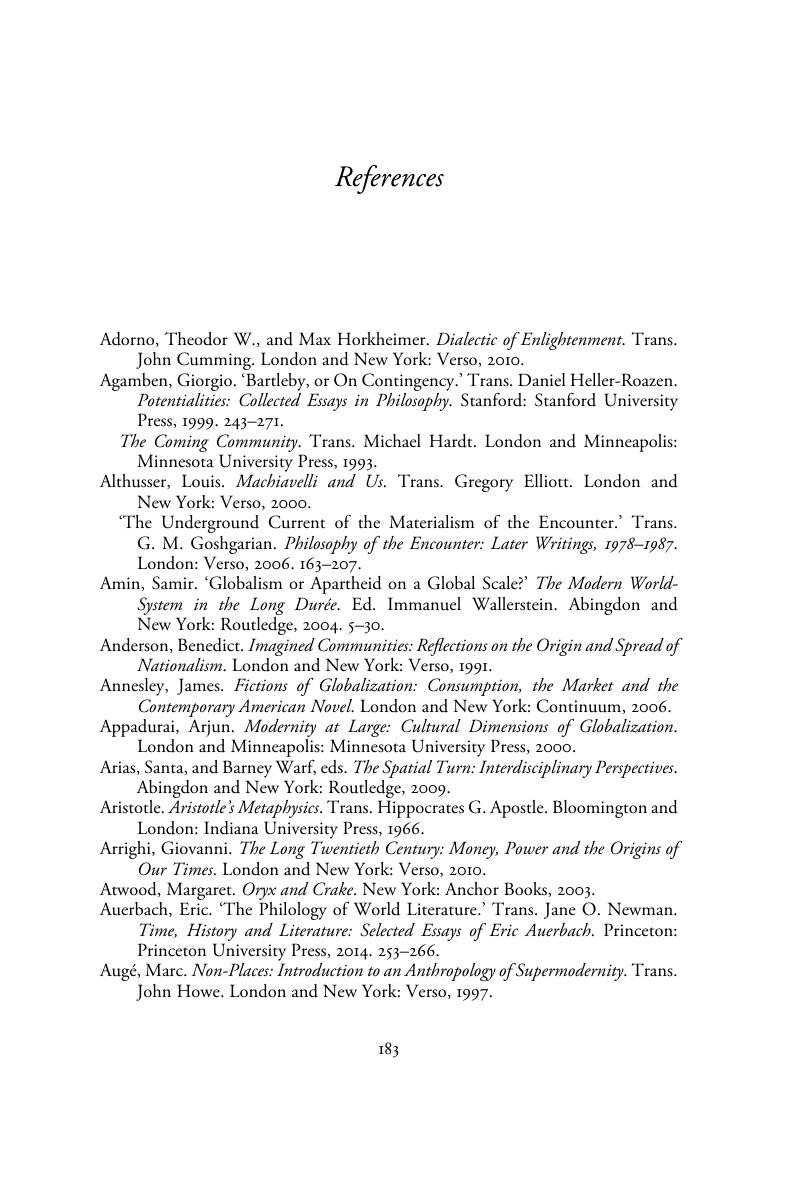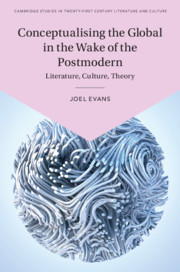Book contents
- Conceptualising the Global in the Wake of the Postmodern
- Cambridge Studies in Twenty-First-Century Literature and Culture
- Conceptualising the Global in the Wake of the Postmodern
- Copyright page
- Contents
- Acknowledgements
- Introduction
- Chapter 1 Immanence I
- Chapter 2 Immanence II
- Chapter 3 Transcendence
- Chapter 4 Contingency
- Chapter 5 Beyond-Measure
- Conclusion
- Notes
- References
- Index
- References
References
Published online by Cambridge University Press: 11 March 2019
- Conceptualising the Global in the Wake of the Postmodern
- Cambridge Studies in Twenty-First-Century Literature and Culture
- Conceptualising the Global in the Wake of the Postmodern
- Copyright page
- Contents
- Acknowledgements
- Introduction
- Chapter 1 Immanence I
- Chapter 2 Immanence II
- Chapter 3 Transcendence
- Chapter 4 Contingency
- Chapter 5 Beyond-Measure
- Conclusion
- Notes
- References
- Index
- References
Summary

- Type
- Chapter
- Information
- Conceptualising the Global in the Wake of the PostmodernLiterature, Culture, Theory, pp. 183 - 199Publisher: Cambridge University PressPrint publication year: 2019

